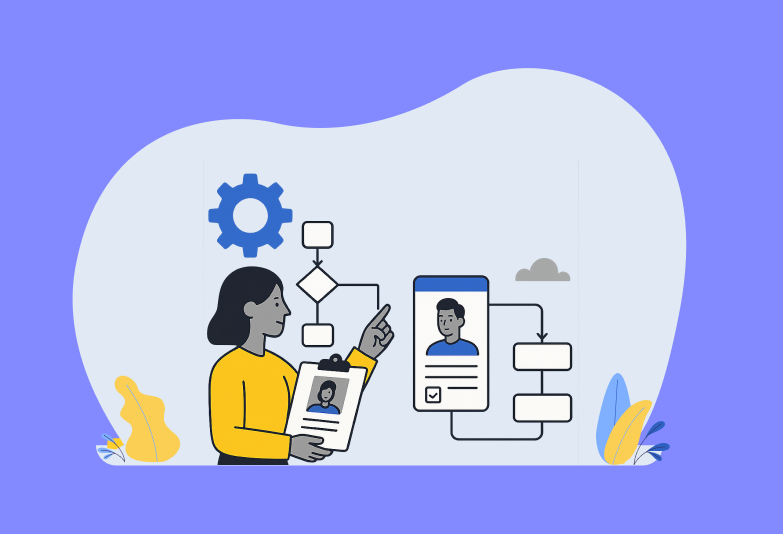Let this number sink in for a moment: almost 13% of the entire US population has a disability. That translates into over 300 million people and counting that can be described by many other terms in addition to living with a disability. They can be innovative, hard-working, creative, outgoing, confident, and exceptional in every way. So why do some companies persist with their policy of hiring based on the single factor that breeds discrimination and prevents diversity from actually improving their business?
Most of them still fail to realize that inclusiveness, tolerance, and that extra mile they need to go in order to make their workplace a suitable one for those with disabilities will all benefit them greatly. Diversity is a game-changing factor for a multitude of reasons, from how your company will be perceived as an equal opportunity employer, all the way to allowing yourself to hire qualified, talented individuals with less conventional skillsets. Here are a few ways that might inspire more companies to take the leap of diversifying their offices more.
Increasing consumer market and revenue
All the excuses and reasons businesses use to avoid implementing these policies circle back to budgeting. Most assume that hiring people with a disability will cause too many expenses without any profit increases, while the opposite is true. For starters, companies that hire those with disabilities get a 28% increase in revenue compared to their peers who don’t implement this practice, and double the net income as well. This can be explained by various factors, from tax deductions, a strong retention rate, all the way to very affordable healthcare.
It’s a common misconception that people with disabilities will necessarily present a financial burden from the perspective of healthcare, since most programs are actually covered by the government. Add to that, an inclusive workplace helps their employees create a culture that breeds engaged employees and improves productivity and teamwork. Finally, that 13% are not just your potential employees, but customers as well. When you build a culture of tolerance and equality, you can rest assured that those 300 million people will respect your business more than ever.
Improving corporate culture and morale
While we’re on the subject of company culture and engagement among your teams, this is a very intricate issue most businesses fail to address properly. There’s still a prevalent practice among many businesses to promote competition instead of collaboration, which in turn can be disheartening for your employees who struggle with a disability, or anyone for that matter. On the other hand, if you start rebuilding your company culture on the foundation of collaboration, mentorship, and support, you will find that people will feel more empathy and greater desire to stay a part of the team.
It is even becoming easier to find talented employees with disabilities through disability employment services provider that helps their candidates find suitable positions and prepare them to integrate better into their new work environments. This bodes well both for the employer and the entire employee collective, as it makes the transition smoother, and by implementing your own sensitivity training, you can make sure that your teams help the new members fit it with greater ease.
Work quality does not suffer
With the right training, preparation, and the welcoming atmosphere you create for them, there’s no reason to expect a person with a disability to deliver work of any less quality than the rest of your team. Quite the contrary, more often than not, people with disabilities know that even in today’s world, a well-suited environment for them is not easy to come by and that they will not find a job with the same ease – it’s a cruel truth, but a truth nonetheless, one that many companies are striving to change.
This knowledge motivates them to work very hard and they feel grateful for the opportunity and the effort invested to create an inclusive work environment. This in turn makes them reliable employees, eager to prove themselves, eager to collaborate, and contribute. Due to their disability, you’ll find them especially grateful as well as ambitious, ready to improve through education and training whenever given the chance.
The changing views of people with disabilities
As more companies embrace inclusivity as a matter of company culture and a must-have policy, the social stigma begins to subside. It might come as an initial surprise, but when you begin to hire people with disabilities, you get a unique glimpse into their world, and a first-hand understanding of what they can do to contribute as well as what you and your business can do to maximize their potential. No one can give you a more intimate view of this part of the population and help you adjust your services to meet their needs as well.
Building a business based on tolerance is a game-changer for companies looking to hire more open-mindedly. Disabilities do not prevent people from developing certain skills and becoming experts – they might even serve as motivation and give them the grit they need to persevere. That is precisely why more employers are changing their own views of people with disabilities, especially if they’ve had the opportunity to work with them on a regular basis. In fact, a study showed that three out of four employers reported high-quality work coming from their employees with a disability, together with high levels of motivation and integration.
From greater profitability, company culture improvements, and all the way to growing your business reputation, the benefits of hiring people with disabilities are endless. Make sure to give everyone an equal opportunity, and you’ll allow your business to thrive.

 Jacob Wilson
Jacob Wilson 

